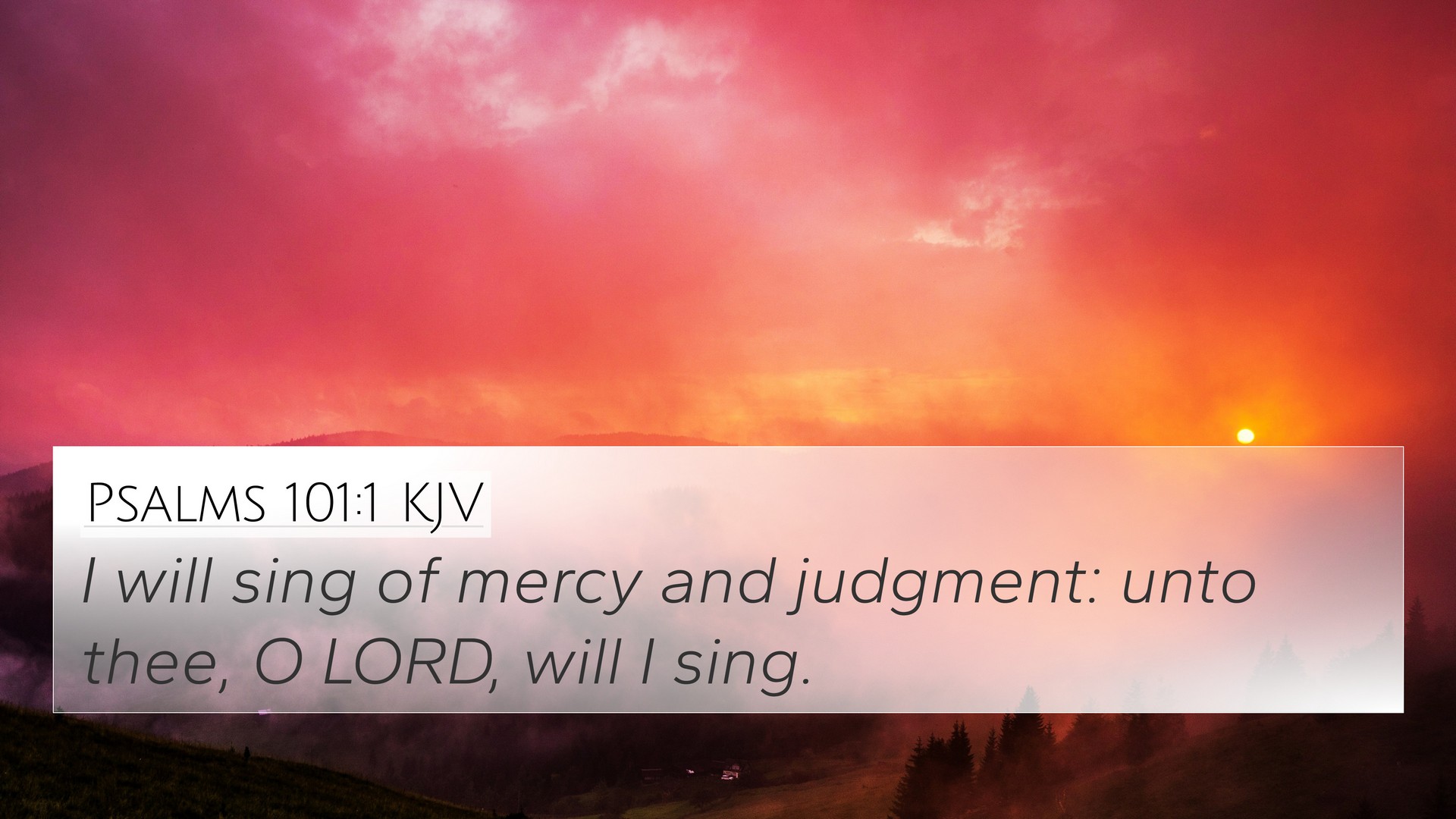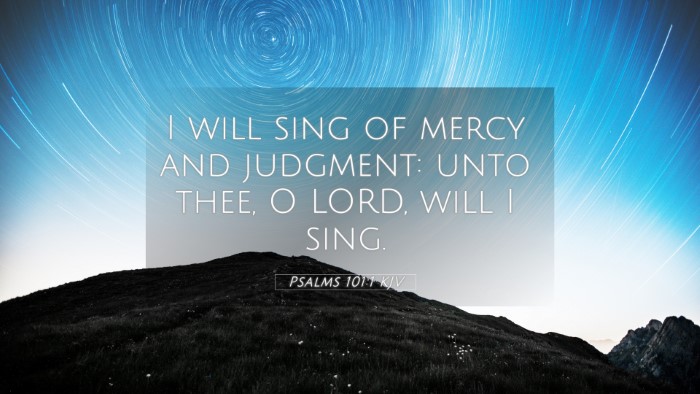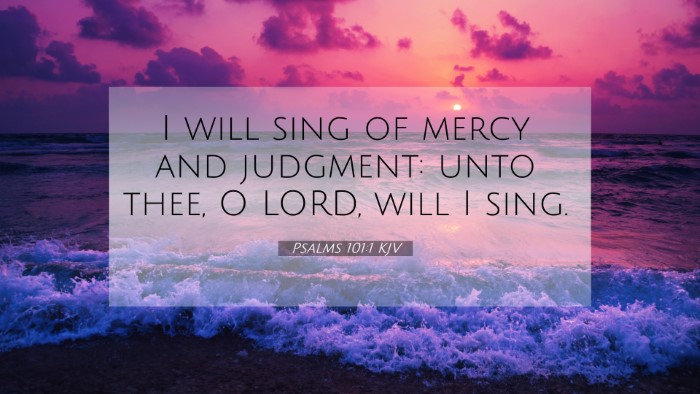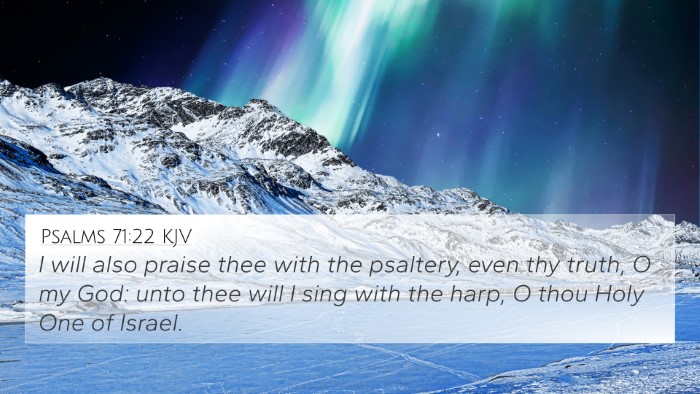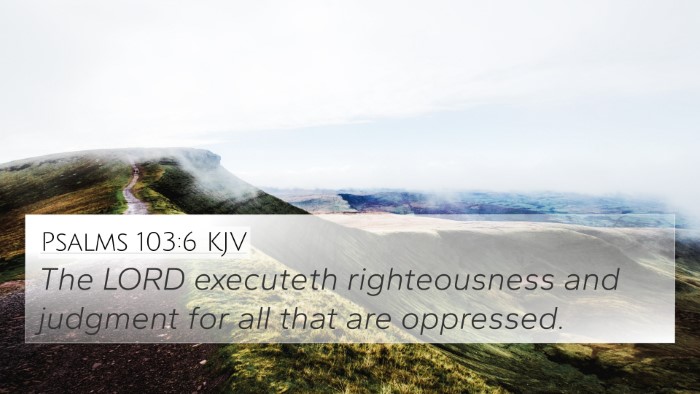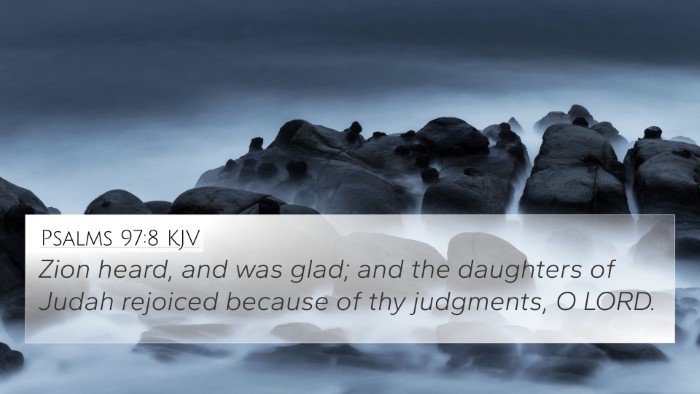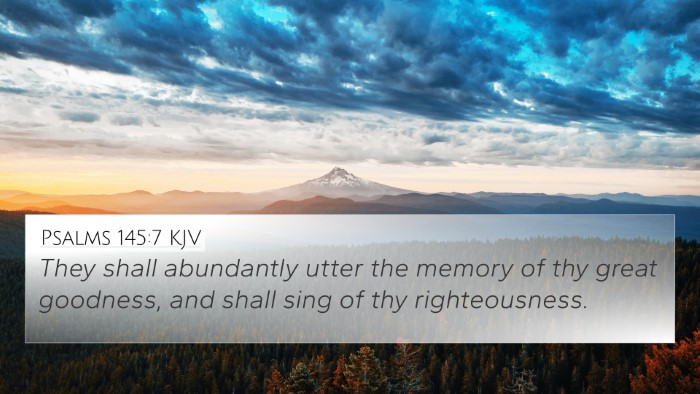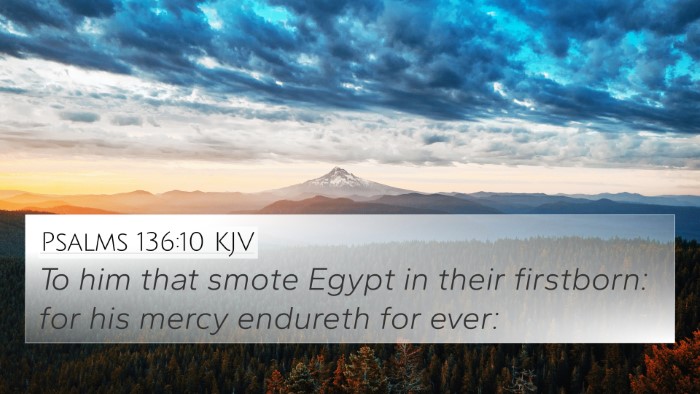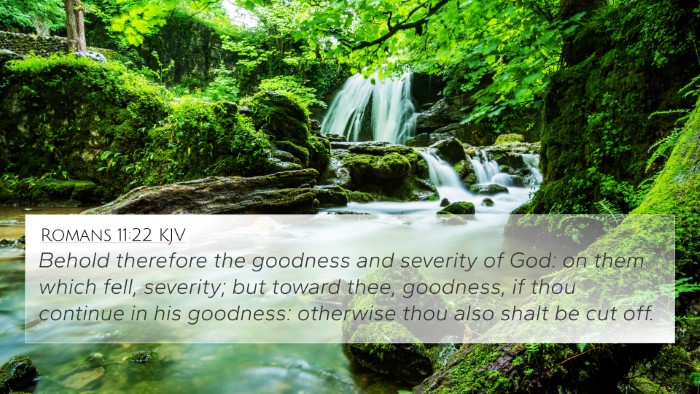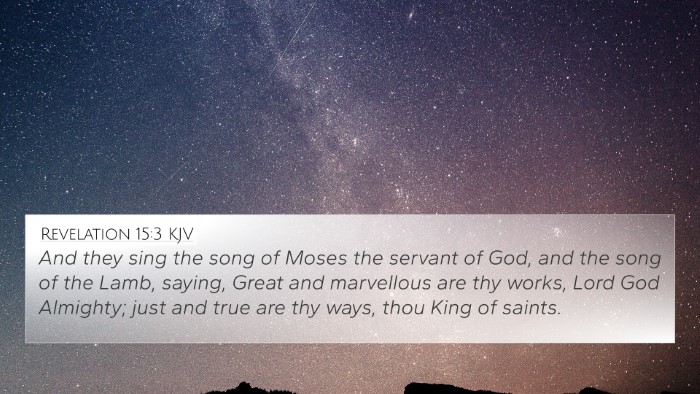Psalms 101:1 - Summary and Interpretation
Bible Verse: "I will sing of mercy and judgment: unto thee, O Lord, will I sing." (Psalms 101:1)
Understanding Psalms 101:1
This verse acts as a declaration of the psalmist's intent to praise God. By singing of both His 'mercy' and 'judgment,' the psalmist highlights two fundamental aspects of God’s nature, indicating that one cannot be fully understood without the other.
Insights from Commentaries
-
Matthew Henry:
Henry's commentary emphasizes the dual themes of mercy and judgment as central to God's character. He explains that the psalmist signals an intention to dwell on the relationship between divine compassion and righteousness, suggesting that true worship incorporates an acknowledgment of both.
-
Albert Barnes:
Barnes elucidates the idea that singing represents an act of worship and a reflection of one's inner understanding of God’s ways. He argues that mercy and judgment are not contradictory but rather complementary qualities that demonstrate the full scope of God’s dealings with humanity.
-
Adam Clarke:
Clarke elaborates on the psalmist's commitment to praise as a response to God's character. He notes that the invocation of God’s mercy reveals an appreciation for grace, while judgment reflects the need for obedience and justice in the moral order.
Key Themes in Psalms 101:1
- Mercy: The lovingkindness of God towards His creation.
- Judgment: The righteous governance of God, ensuring justice.
- Worship: The importance of expressing one's faith through song and praise.
Connections to Other Bible Verses
Psalms 101:1 has several cross-references that enhance our understanding through scriptural connections:
- Psalms 89:14: "Justice and judgment are the habitation of thy throne: mercy and truth shall go before thy face."
- Psalms 136:1: "O give thanks unto the Lord; for he is good: for his mercy endureth forever."
- Psalms 50:6: "And the heavens shall declare his righteousness: for God is judge himself."
- Micah 6:8: "He hath shewed thee, O man, what is good; and what doth the Lord require of thee, but to do justly, and to love mercy, and to walk humbly with thy God?"
- James 2:13: "For he shall have judgment without mercy, that hath shewed no mercy; and mercy rejoiceth against judgment."
- Romans 11:22: "Behold therefore the goodness and severity of God: on them which fell, severity; but toward thee, goodness, if thou continue in his goodness."
- Proverbs 21:21: "He that followeth after righteousness and mercy findeth life, righteousness, and honour."
- Isaiah 30:18: "And therefore will the Lord wait, that he may be gracious unto you, and therefore will he be exalted, that he may have mercy upon you: for the Lord is a God of judgment..."
- Luke 18:7-8: "And shall not God avenge his own elect, which cry day and night unto him, though he bear long with them?"
- Hebrews 4:16: "Let us therefore come boldly unto the throne of grace, that we may obtain mercy, and find grace to help in time of need."
Thematic Connections
This psalm exemplifies the interconnectedness of various biblical themes, emphasizing the importance of mercy and judgment in Christian theology. Not only do these themes resonate in the Old Testament, but they also find relevance and culmination in the New Testament teachings.
Exploring Cross-References
Exploring the connections between Psalms 101:1 and related verses can be particularly insightful for those engaged in theological study:
- How to use Bible cross-references: Utilize a concordance or a cross-reference guide to identify relevant verses.
- Bible chain references: Follow thematic links across different books of the Bible.
- Cross-referencing Bible study methods: Engage in verse-by-verse analysis to reveal deeper connections.
Practical Applications
This psalm encourages believers to emulate worship through song, reflecting on God's attributes in both private and communal settings. Understanding the balance of divine mercy and judgment helps cultivate a holistic view of God's nature, prompting a life of gratitude, ethical behavior, and reverence.
Conclusion
In summary, Psalms 101:1 serves as a profound reminder of the dual aspects of God’s character that should inspire worship and inform our understanding of His righteous governance. Through cross-referencing biblical texts and engaging in comparative analysis, believers can find greater depth in their faith.
